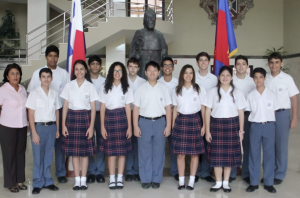Looking to learn more about education in Panama? If you’re moving to Panama, you’re not alone. Relocating to a new country often comes with a myriad of considerations, and for families, one of the most critical is ensuring a smooth transition for their children into the local education system. In the case of Panama, a country known for its vibrant culture and diverse landscapes, understanding the educational landscape is essential. In this guide, we explore the various options for education in Panama, providing valuable insights for expatriate families seeking to enroll their children in schools abroad.
Public Schools: Embracing the Panamanian Educational System
Public schools in Panama are a cornerstone of the country’s education system, providing education to a significant portion of the population. For expatriate families, enrolling their children in public schools can offer an immersive experience, allowing them to integrate into the local culture and form connections with Panamanian peers.
Panama’s public education system is overseen by the Ministry of Education, and while it may vary in quality from region to region, efforts have been made to standardize curricula and improve educational outcomes nationwide. Spanish is the primary language of instruction, so expatriate children may undergo a period of adjustment to adapt to the language barrier.
The enrollment process for public schools typically involves submitting documents such as proof of residence, medical records, and previous academic transcripts. While public education is generally free, there may be nominal fees for supplies, uniforms, and extracurricular activities.
Private Schools: Tailoring Education to Individual Needs
For expatriate families seeking a more specialized or international curriculum, private schools in Panama present an attractive option. These institutions often offer bilingual education, combining Spanish and English instruction, and may follow international education standards, such as the International Baccalaureate (IB) or American curriculum.
Private schools are known for their smaller class sizes, personalized attention, and diverse extracurricular activities. The admissions process typically involves an application, entrance exams, and interviews. Tuition fees can vary widely, depending on the school’s reputation, facilities, and the grade level of the student.
Popular among expatriate families, private schools provide a multicultural environment that facilitates an easier transition for foreign students. Some well-established private schools in Panama City, such as the International School of Panama, offer a comprehensive education with a focus on global perspectives.
Religious Schools: Blending Faith and Education
For families who value a religious foundation in their children’s education, religious schools in Panama offer an alternative. These schools, often affiliated with a particular faith, integrate religious teachings into the curriculum while providing a standard academic education.
Catholic schools, in particular, are widespread in Panama and are known for their strong emphasis on moral values and character development. The admission process for religious schools typically involves an interview with the school administration, and parents may be required to provide proof of their religious affiliation.
While the primary language of instruction is Spanish, some religious schools may offer bilingual programs to accommodate expatriate students. Families considering religious schools should explore the specific religious and academic requirements of each institution to ensure alignment with their values and educational goals.
Homeschooling: Tailoring Education to Your Family’s Needs
Homeschooling is a legal and viable option for expatriate families in Panama. The country’s Ministry of Education recognizes and supports homeschooling as an alternative to traditional schooling. Families interested in homeschooling their children need to submit a formal request to the Ministry of Education, outlining their educational plan and curriculum.
Homeschooling provides the flexibility to tailor the educational experience to the individual needs and pace of each child. Expatriate families can choose from a variety of curricula, including international programs, and incorporate cultural and language studies relevant to their new home.
While homeschooling requires commitment and organization, it allows families to maintain their cultural identity and adapt the curriculum to suit the international context. Joining homeschooling networks and communities can also provide valuable support and resources for both parents and children.
What to Expect: Navigating Cultural Nuances and Language Barriers
Regardless of the educational path chosen, expatriate families in Panama should anticipate some cultural nuances and potential language barriers. Spanish is the primary language of instruction in most schools, so expatriate children may undergo an adjustment period to become proficient in the language.
Cultural integration is a key aspect of the education experience in Panama. Embracing local traditions, participating in community events, and encouraging friendships with Panamanian peers can enhance the overall educational experience and facilitate a smoother transition for expatriate students.
A Tapestry of Opportunities for Education in Panama
Education in Panama offers a diverse tapestry of options for expatriate families, catering to various preferences and needs. Whether choosing public schools for cultural immersion, private schools for international curricula, religious schools for a faith-based education, or homeschooling for a personalized approach, each option comes with its unique advantages. By understanding the intricacies of the educational landscape, expatriate families can make informed decisions, ensuring that their children embark on a fulfilling and enriching educational journey in their new Panamanian home. To learn more, please contact us online here.
